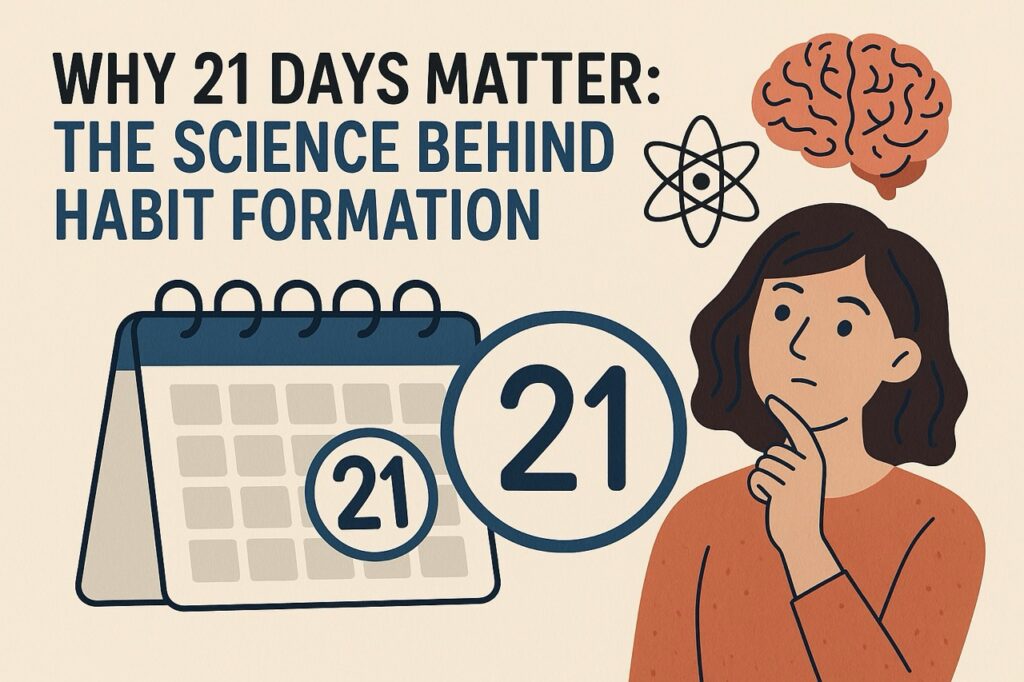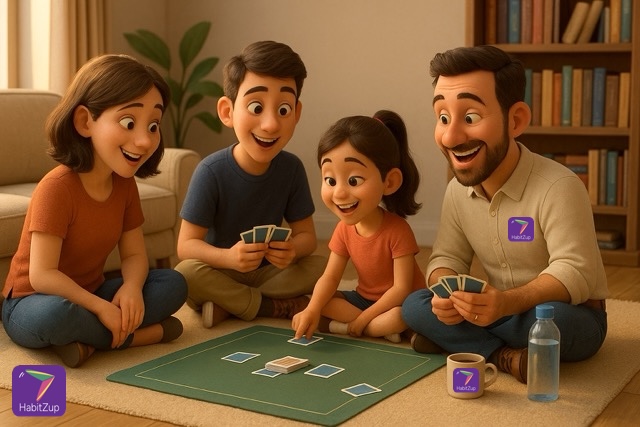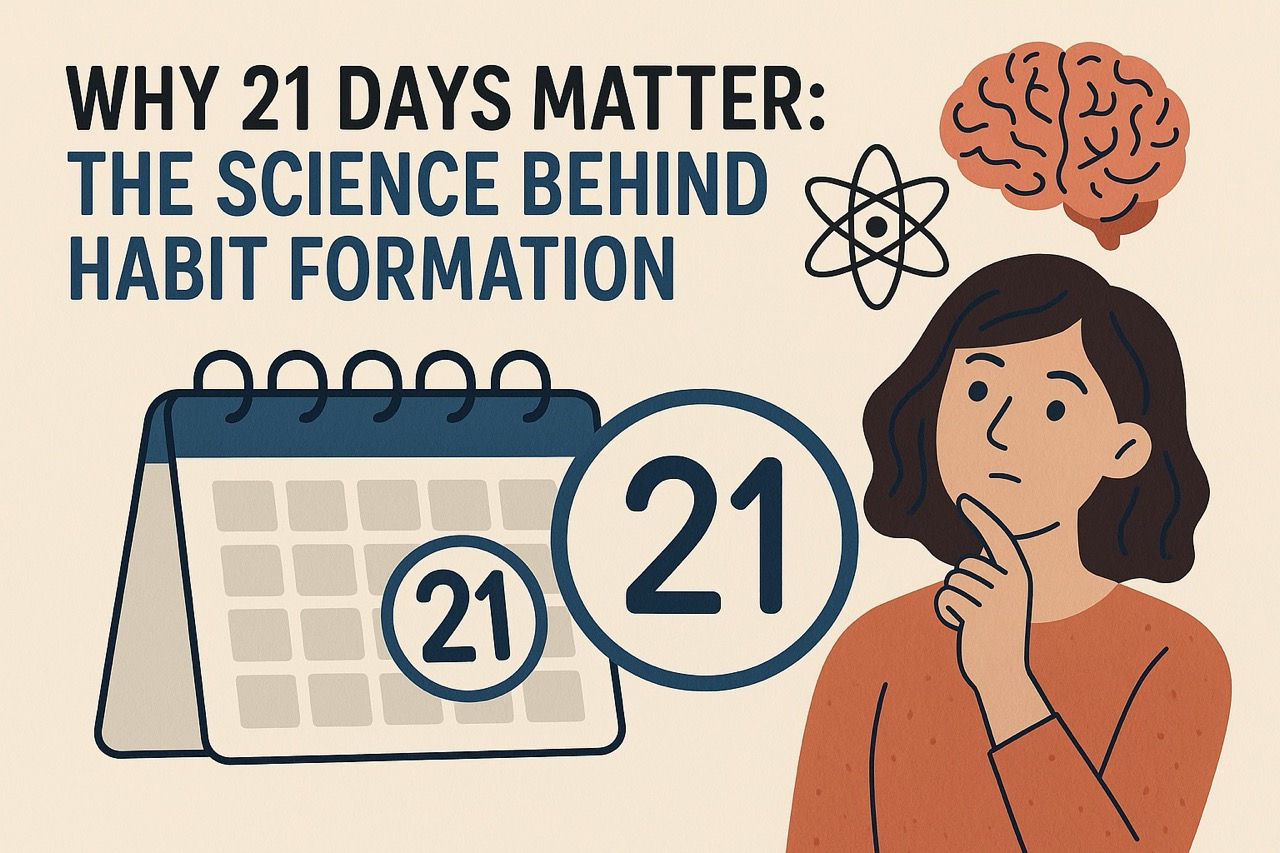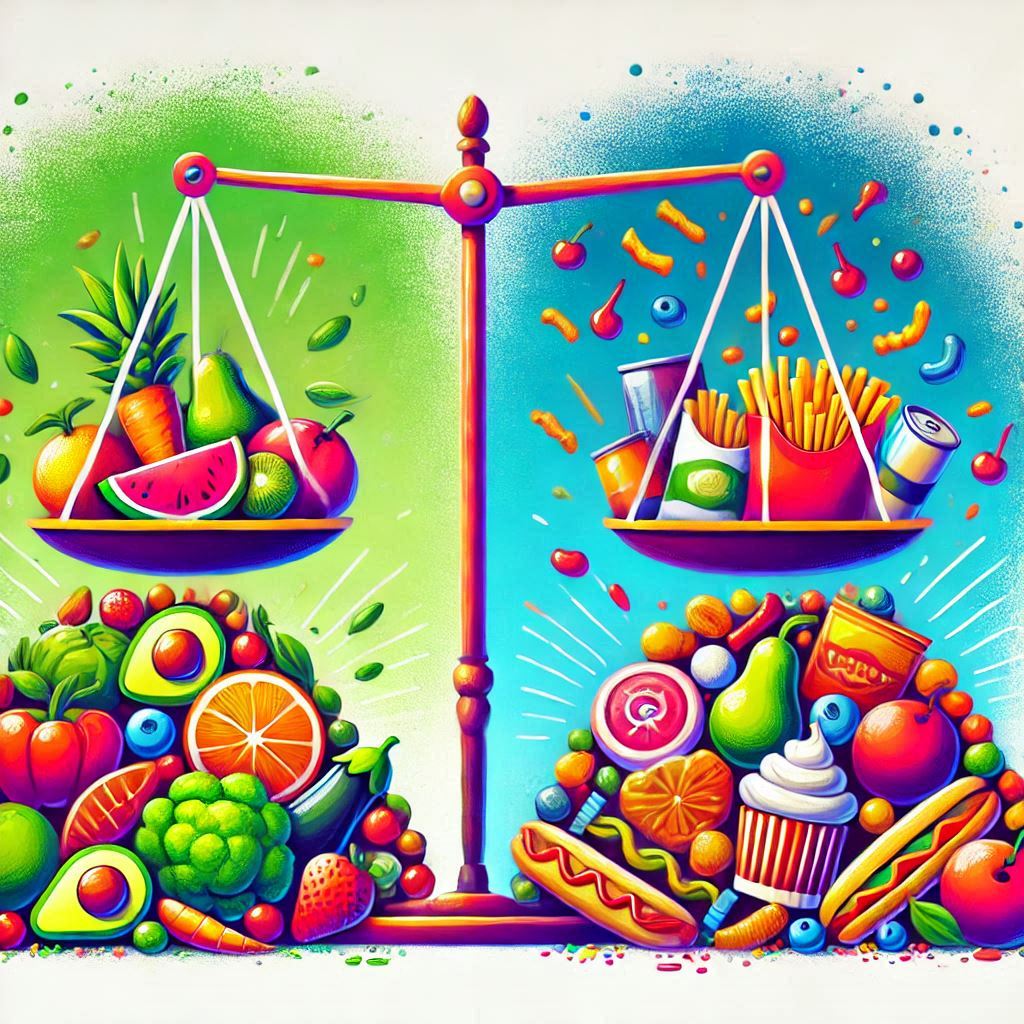Introduction: The Power of 21 Days
How long does it take to form a new habit? Most people, when they start a fitness plan, meditation practice, or a productivity challenge, hear this golden number: 21 days.
But why 21? Is it backed by science—or is it just another self-help myth?
In this blog, let’s break down the truth behind the famous 21-day rule, what modern neuroscience says about it, and why HabitZup uses this magic window to help kids and families build life-changing habits—one day at a time.

The Origin of the 21-Day Habit Rule
The “21-day habit formation” idea originated from Dr. Maxwell Maltz, a plastic surgeon in the 1950s. In his best-selling book, “Psycho-Cybernetics”, he wrote:
“It requires a minimum of about 21 days for an old mental image to dissolve and a new one to jell.”
Maltz noticed that when his patients underwent surgery (like a nose job or amputation), it took them about 21 days to adjust to the physical change. Over time, this observation became generalized:
➡️ “It takes 21 days to form a new habit.”
The self-help industry adopted this catchy number because it was simple, believable, and actionable. But is this 21-day rule really enough?
What Modern Science Really Says About Habit Formation
Fast forward to today: researchers at University College London (2010) found that habit formation is more complex.
They studied 96 people who were trying to adopt new habits (like drinking more water or exercising daily). The result?
- On average, it took 66 days for the habit to become automatic.
- Some people needed only 18 days—while others needed up to 254 days, depending on the habit’s difficulty.
So why does 21 days still work in many cases?
Because for simple daily behaviors—like practicing gratitude, drinking water, stretching, or using HabitZup cards for 5 minutes—21 days is long enough to break old patterns and plant new ones.
In fact, most tiny, achievable habits stick well within 21 days, especially for kids and families where the focus is on play, fun, and joy—not heavy discipline.
The Brain’s Habit Loop: Why 21 Days Feels Right
Every habit your brain forms runs on a 3-step loop:
- Cue (Trigger that reminds you)
- Routine (The actual habit or action)
- Reward (The satisfaction or benefit you get)
For the first 21 days of any new habit, your brain is building and testing this loop. After 21 days:
- The loop starts feeling automatic—like brushing your teeth or tying your shoes.
- The basal ganglia (the brain’s habit center) takes over from the prefrontal cortex (the thinking brain).
- You no longer have to “decide” to do the habit—it just happens.
This is why HabitZup’s 21-Day Family Challenge works beautifully: it gives your brain enough repetitions to wire in the new habit without feeling overwhelming.
Why 21 Days is Perfect for Families & Kids
For parents, kids, and families, the 21-day model is golden because:
1. Short Enough to Stay Motivating
Kids (and even adults) get bored or overwhelmed by long challenges. 21 days feels achievable—a “mini goal” they can celebrate.
2. Long Enough to See Results
Whether it’s waking up on time, expressing gratitude, or handling emotions better—most simple habits start showing visible change in 3 weeks.
3. Builds Confidence and Identity
Completing a 21-day streak creates a psychological win. Kids start believing:
“I am someone who can stick to good habits.”
4. Fits School & Family Calendars
A 21-day cycle aligns well with school projects, family challenges, and holiday plans—making it easy to implement without life disruption.
5. Gamification Made Easy
HabitZup makes this fun: each day feels like unlocking a new level, not a boring chore. The game design fits perfectly into this 21-day rhythm.
What Happens After 21 Days?
Does the habit stay forever after 21 days? Not always.
But here’s what does happen:
- The hardest part—starting—gets done.
- Your brain starts craving the habit’s reward (like peace after meditation or joy after gratitude).
- Missing the habit feels uncomfortable—a sign that the habit loop is active.
If you want the habit to last, the next 21 to 66 days can deepen and reinforce it. But 21 days is the crucial threshold where friction reduces and flow begins.
How to Make the Most of Your 21-Day Habit Challenge
Here are 3 simple ways to ensure your 21-day journey succeeds:
1. Start Tiny—Really Tiny
The brain loves easy wins. A 1-minute habit (like smiling or breathing deeply) is better than a 15-minute overwhelming one.
Example:
➡️ Just 1 HabitZup card daily.
➡️ Just 3 deep breaths before bed.
2. Track Progress Visually
Seeing your daily streak builds momentum. Use:
✔️ HabitZup’s Color Tracker
✔️ A simple paper calendar
✔️ Stickers or stars for kids
3. Celebrate Day 21 Like a Mini-Festival
Reward the effort—not just the result. On Day 21:
✔️ Family ice-cream night
✔️ A fun outing
✔️ A new HabitZup deck unlock
Celebration triggers dopamine—the brain’s “feel-good” chemical—which makes future habits easier to form.
Why HabitZup Uses the 21-Day Model
At HabitZup, we believe habits shape homes. Our games, trackers, and challenges are built around 21 days because:
✔️ It works for all ages—kids, teens, adults.
✔️ It fits busy family schedules without pressure.
✔️ It delivers real, joyful transformation in everyday life.
Parents report:
- Less nagging
- More self-driven kids
- Family bonding around positive rituals
And the best part? Even after the 21 days, families feel ready to take on bigger and bolder habits—together.
Final Thoughts: Your Next 21 Days Can Change Everything
21 days is more than a number—it’s a door to a better life. Whether it’s waking up earlier, reading daily, or building emotional strength in your kids—the first 21 days matter the most.
They set the track for the journey ahead.
So what habit will you start today?
- A gratitude ritual at dinner?
- A 5-minute focus game with HabitZup?
- A daily smile at the mirror?
You are just 21 days away from making it stick.
Ready to Begin?
If you do not already have HabitZup, order one today.






